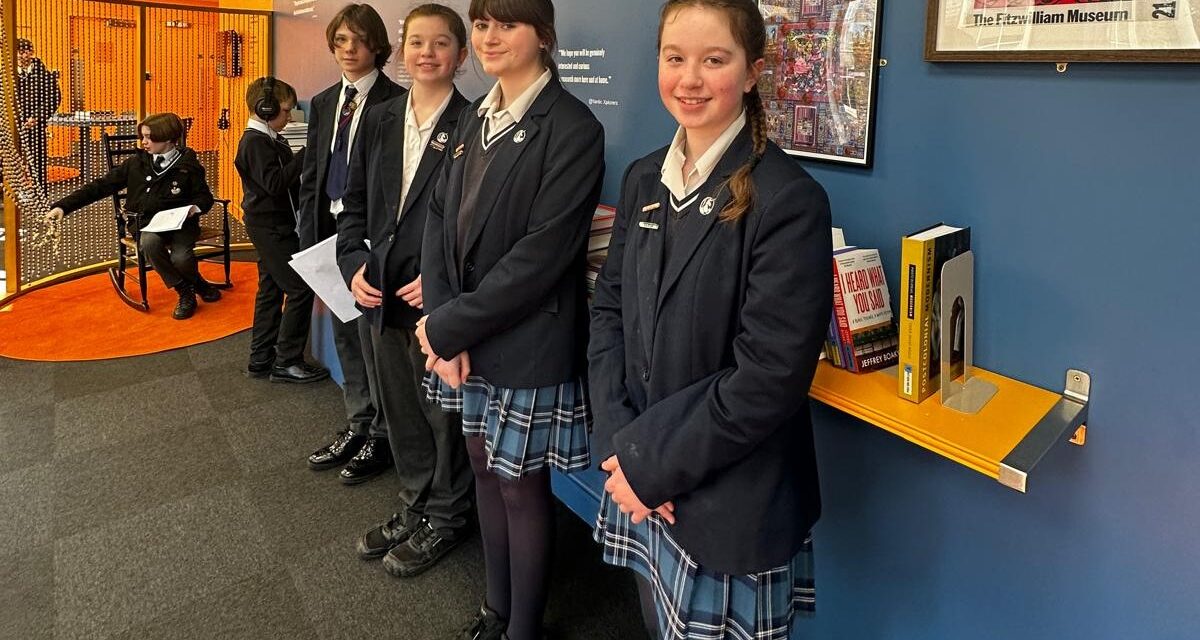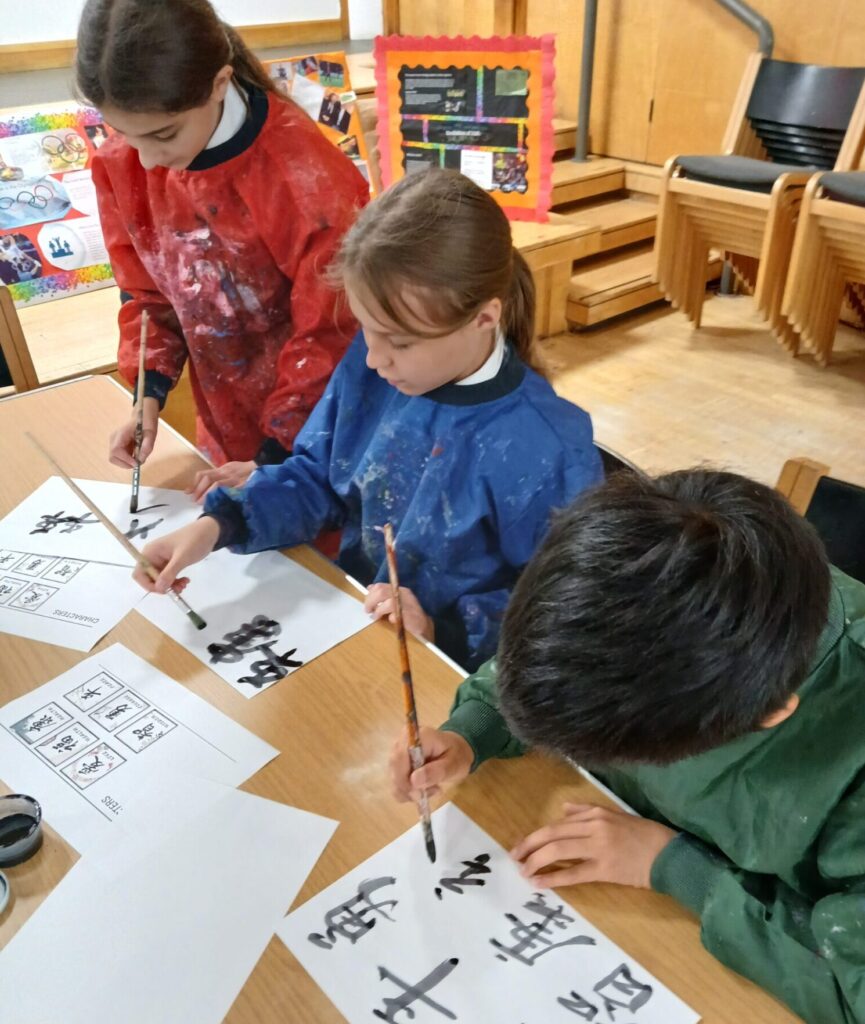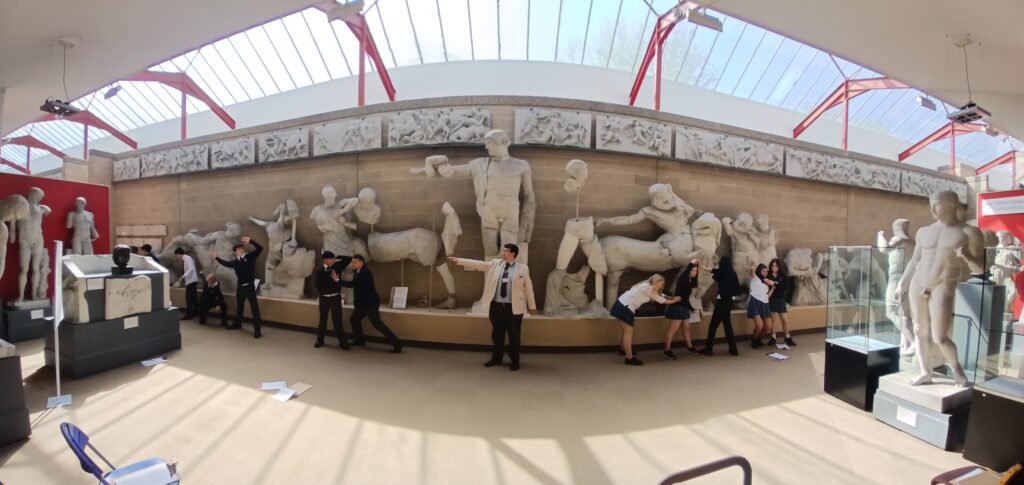On Thursday, Y8 students had the opportunity to visit the ‘Rise Up’ exhibition at the Fitzwilliam Museum in Cambridge, a visit that greatly enriched their understanding of a critical period in history. The exhibition, which delves into the transatlantic slave trade and its eventual abolition, provided the perfect complement to the students’ recent studies on this topic in their History lessons.
The exhibition takes visitors on a powerful journey, exploring the lives of enslaved Africans from their capture in Africa, their harrowing voyage across the Atlantic, and the resistance movements that led to the eventual abolition of slavery across the British Empire in 1833. As part of their curriculum, Y8 students have already studied the history of the transatlantic slave trade, making the visit an invaluable opportunity to see historical artifacts and artwork that brought the stories they’ve learned to life.
Students were particularly engaged by the diverse range of items on display, from portraits and sculptures to everyday objects that highlighted the experiences of both enslaved people and the abolitionists who fought for their freedom. Key figures, such as Dido Belle, an influential woman of mixed heritage who played a pivotal role in challenging the system of slavery, and Henry I, the first King of Haiti who led the successful Haitian Revolution, were brought into focus during the tour. These historical figures sparked much discussion and reflection among the students, who demonstrated curiosity and a keen interest in learning more about the impact of their lives and legacies.
To help guide their exploration, Mrs. King, had prepared an excellent worksheet for the students. The worksheet not only prompted thoughtful questions but also encouraged deeper engagement with the exhibits. As the students moved from one artifact to the next, they were able to use the worksheet to reflect on the significance of each piece, making connections to the historical content they had studied in class.
Throughout the visit, Y8 students were attentive, inquisitive, and respectful of the sensitive subject matter. Their thoughtful questions and insights demonstrated a growing awareness of the long-lasting effects of the transatlantic slave trade and the abolition movement.







